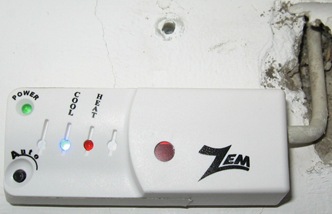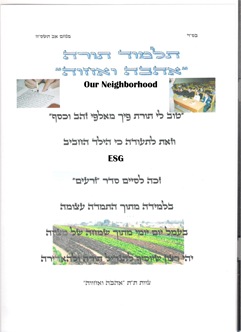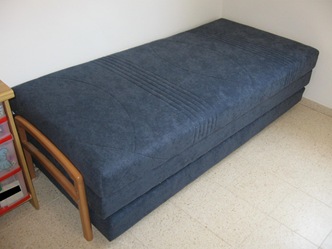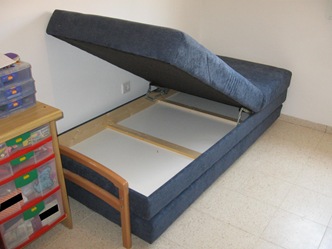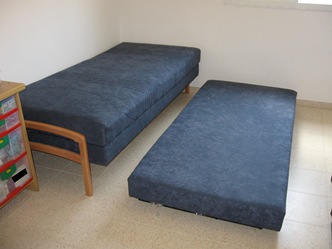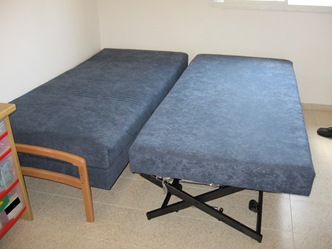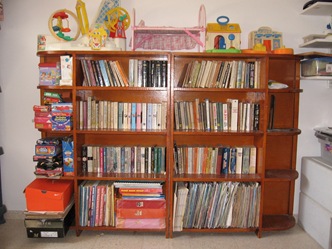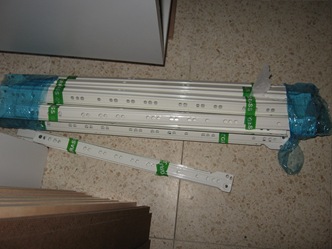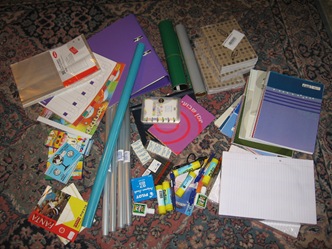As indicated here, we B”H recently celebrated our ten year aliyah-versary.
In a thought-provoking post (which I first saw referenced here and also here) in honor of her own aliyah anniversary, Chayyei Sarah wrote about the five stages of aliyah: Euphoria, Panic, Depression, Adaptation, and Acculturation. As she explains, the stages are not always sequential; upon occasion, they work in parallel and/or repeat themselves.
In any event, most of the time, we find ourselves tentatively dipping our toes into the shallow end of Acculturation – albeit with frequent forays back into Adaptation as well as the sporadic relapse or two to the earlier stages.
But in this post*, I want to talk about the “final” stage: Acculturation.
To a certain extent, this stage is well-nigh impossible to achieve. I mean, although our Hebrew is more or less passable, our American accents will never disappear. Similarly, we have certain ingrained tastes and habits – e.g. eating our main meal at suppertime, using seatbelts and car seats, disliking olives, purchasing only Fahrenheit thermometers, and many others – which I don’t think we will be giving up anytime soon.
But then there are things which we seem to have adopted without even noticing – such as changing our taste in food (except, of course, for the aforementioned olives), saying things like ”mazal tov” instead of “mazel tov”, celebrating our Hebrew birthdays rather than our English ones, no longer automatically deleting long Hebrew emails, etc.
Yet, at the same time, there are other behaviors which we have taken up – deliberately, self-consciously, sarcastically and ironically.
What do I mean?
Let me give you two examples:
1. In the comment section to this post, Benji Lovitt observes that Israelis don’t use the same “phone number rhythm” which we are used to from the States. In the first few years after our aliyah, I found this to be very disconcerting. I mean, one time someone would give a number with a 3-4-3 rhythm, and then the next time, someone else would use a completely different rhythm. Meanwhile, I made a point of always using the more familiar and natural 3-3-4 (or 2-3-4 for a land line).
But lately, I amuse myself by using all sorts of odd rhythms. For instance, for cell-phones, I interchange the simple 3-1-3-3 with the never-ending 2-2-2-2-2 and the symmetric 2-1-4-1-2 and 3-1-2-1-3. The funny part is that no one has complained yet!
2. The second example also concerns giving out phone numbers. As good ol’ YT (who really should start posting again on his “nameless” blog) pointed out many years ago, whenever an Israeli gives out a phone number or address over the telephone, he or she will introduce this information with a “ יש לך עט? תרשמי” (“Do you have a pen? [Then] write.”) New olim tend to find this patronizing and annoying. (Yeah, I called you up to ask for the phone number, but it never occurred to me to prepare a pen. Do you also want to ask me if I washed behind my ears and did my homework?)
But over time, I learned to embrace this phrase, and now whenever I give out information over the phone, I enjoy opening with a “יש לך עט” of my own. (Inevitably, the ironic tone goes over the listener’s head.)
So, there you have it – a view of Acculturation from the front lines.
Please feel free to share your experiences in the comments section.
______________
* Yes, this was supposed to be the big ten-year aliyah-versary post that I’ve been hyping incessantly over the past few weeks. But now that I’ve finally written it, I realize that I have more to say on the subject. Watch this space for more aliyah-related posts.



